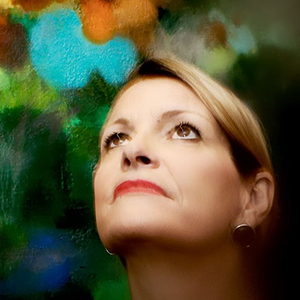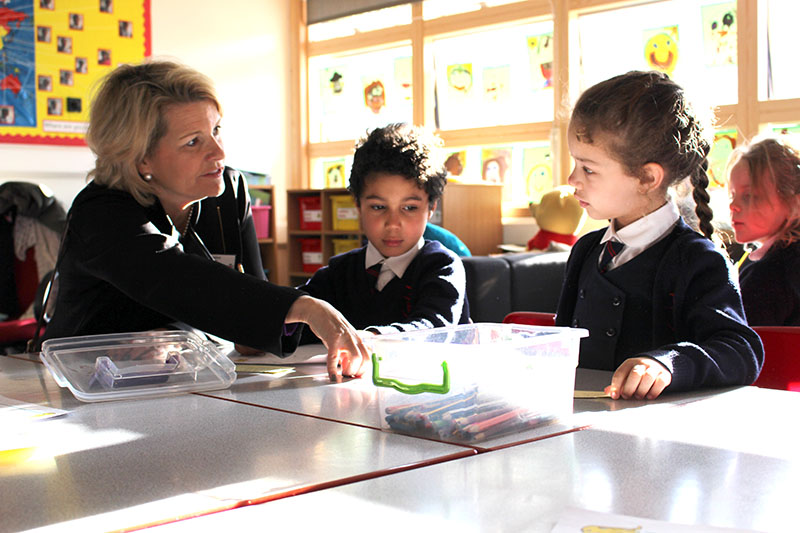Professor Anne Bamford OBE
 Anne Bamford
Anne Bamford
Meet an education visionary
Professor Anne Bamford OBE, the Strategic Director of Education, Culture and Skills for the City of London, is considered a global innovator in education. A former visual arts teacher and university lecturer, she served as a world scholar for UNESCO from 2005-6, and has worked internationally to promote creativity, innovation, equity and diversity in education.
Professor Bamford completed her Bachelor of Education at UNE in 1986, as part of her enthusiasm for the value of lifelong learning.
Describe the personal struggles you had learning in Year 5.
Perhaps if I had been in Year 5 today I would have been described as dyslexic, but then I was just ‘not very bright’. I was in the lower class and really struggling to achieve. The class teacher would use humiliation to try to make me learn, but that just made me more nervous and less likely to learn. Fortunately for me, that teacher left the school and a casual teacher arrived. She was only there for less than half a school term, but during that time I transformed as a learner. I realised that if I used the arts to learn – drawing, drama, making, movement – I could learn anything. And, even more importantly, I could like or even love learning. This was transformational and I become committed to opening that possibility to other children.
What part did UNE play in your learning journey?
I had completed a Diploma of Teaching in 1981 and working as an art teacher in Sydney when I began my degree at UNE. It really showed me the value of studying while working, as everything becomes so much more meaningful when you are doing the thing during the day and learning more about it on weekends and at night. This was a very exciting way for me to learn. You could immediately put into practice what you were learning and also become better at reflecting in your day-to-day teaching. Studying made my teaching better.

After an extensive tertiary teaching career, what led to your world scholar role with UNESCO?
It came from out of the blue. I was working as the Program Director (Creative Arts) in the Faculty of Education at UTS when I received an invitation to go to Paris to do some background research for UNESCO before their Education for All strategy was launched. This opened a huge door. I subsequently conducted major national impact and evaluation studies for the governments of Denmark, The Netherlands, Belgium, Iceland, Hong Kong, Ireland and Norway. It has been wonderful to see into classrooms all over the world.
Since 2009 I have continued to contribute to the World International Advisory Committee. This has involved looking at future trends in education and providing input into international programs of reform. At the moment there is work underway to look at the sort of education we will need for 2050 and beyond. I really value working with many wonderful colleagues in education from all over the world. There are many similarities in the challenges we face and our ambitions for the future.
Tell us about your current role as Strategic Director of Education, Culture and Skills for the City of London.
My role is a very exciting one as I’m responsible for the design of strategies and their implementation in London. My work covers school education, but also lifelong learning for all ages and in all places, such as colleges, vocational education, universities, the community, and workplaces. I also have the privilege of working with wonderful cultural institutions such as the Barbican, Museum of London, and Guildhall Schools of Music and Drama. London is an amazing city. It’s very diverse and energetic and there are always discoveries and great opportunities to experience culture.
You have written about the importance of the arts and culture in transforming environments and contributing to social cohesion and peace. How do they achieve this?
Arts and culture play a vital role in helping people to flourish now and into the future. But it is important that people are exposed to high quality and systematic development of this way of understanding the world. So the real focus of my work has been to help systems, including in classrooms, improve the way that arts and culture is taught and to ensure it is a joined-up, high-quality experience. I work at the research and policy level but also very much on the ground. As I write this email, I have just spent two days with teachers and children in a kindergarten in Denmark working to boost the quality of what is on offer in terms of art and culture. We need to look to the sky but keep our feet firmly on the ground!
You have also written about the need to reimagine and recentre education, to question the metrics and measures of success, and the education models and methods we use. Ultimately, you seem to suggest that it’s a matter of schools prioritising equal access and inclusion. Why are these goals so important?
Everyone needs to flourish, and learning throughout one’s life is crucial. It is not acceptable to just make learning a privilege for a few. There are so many people who miss out. We really need to turn our attention and focus to these people. A good society is judged by the learning opportunities of the least able in our society or those people or groups under-served by the system. This is where our attention must be placed … and the good news is, the “rising tide lifts all boats”. What is good and works for the under-served groups tends to work for everyone, and the whole society is lifted by this experience.
What has your research into creativity, lifelong learning, innovation, social impact, and equity and diversity taught you about the “fusion skills” that will be required of our future leaders/educators, indeed all of us?
Fusion is a person-centric approach, equipping the future and current workers with the expertise that is necessary for success. Fusion brings together different industries and technologies to spark innovation and create sustainable economic growth. Fusion skills use interdisciplinary work as a driver for creativity and innovation. Change happens so quickly and we all need to be ‘fusionistas’ – people who are constantly renewing our fusion skills.
The top 12 fusion skills demanded by employers are:
- Oral communication/presentation skills;
- Collaboration and teamwork;
- Initiative;
- Problem-solving;
- Organisational skills (planning, time management, prioritisation, multi-tasking);
- Adaptability/flexibility;
- Written communication;
- Independent working/autonomy;
- Critical thinking;
- Resilience;
- Creativity; and
- Analysis and evaluation skills.
You have said that “learning is about becoming ourselves”. What do you mean?
Becoming is about identities, knowledge, understandings, capacities, skills and relationships, and these all change during our life. In this way, ‘becoming’ emphasises learning as the tool or means by which we can participate fully and actively in society.
What do you consider are the most important lessons you have learned in your life?
Trust your instinct. Collaborate. Say yes to more opportunities and love learning new things.

